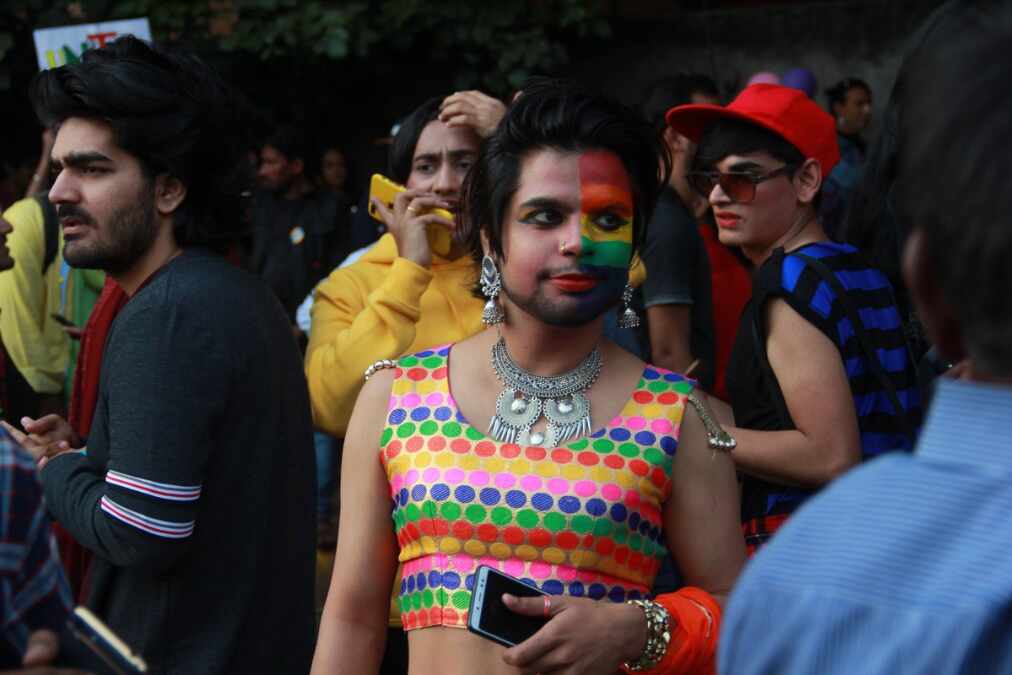Peripheral existence
The already ostracised trans community has been pushed to the fringes by the pandemic, and awaits livelihood reforms; write Debabrat Patra & Milinda Mishra

The transgender people, who have very little means of earning a living other than begging and sex work, took a massive hit when the COVID-19 pandemic restricted movement and business activities.
The neglected community, that is already ostracised, saw their income dwindle to nearly nothing, as access to social services remained limited.
The pandemic, however, can retrain focus on their livelihood reform. New work avenues, that are safer and provide the opportunity to lead a dignified life, can be created while building back, as normalcy returns.
"No one wants to beg", said Madhuri Maa — a 45-year-old transwoman from Bhubaneswar.
Members of the community used to earn Rs 300 each day before the pandemic but, during the second wave, this income vanished completely, said Phula Kinnar, a transwoman from Sahidnagar. She further added: "Harassment is very common in what we do. We are often called chhakka, pena, maichiya and other slangs. We ignore such behaviour just because we have to work if we want food on our plate."
Governments and civil society actors can bring a change to this situation and provide sustainable livelihood by making a concerted effort.
Most transgenders contract from HIV-AIDS, which makes them all the more prone to health issues throughout their lives. The mortality rate in the community due to the infection is 38.6 per cent. They constitute 17.85 per cent of the total cases undergoing antiretroviral therapy for HIV.
The community's national population of 4,87,803 has a literacy rate of 56.07 per cent.
There are several provisions in the Indian Constitution to safeguard transgender people: Article 15, which prohibits discrimination based on sexual orientation as well as gender identity, and Article 21, which aims to ensure the right to a safe, dignified life. Yet, we don't have an efficient framework to support the community in India.
Several state-specific measures for transgender peoples have been taken over the years in Kerala (housing projects for homeless and skill building) and Tamil Nadu (welfare scheme providing self-employment grants for small businesses, vocational training or other material support).
In 2017, Odisha implemented the Sweekruti scheme for the promotion of transgender equality and justice to shield the trans community from discrimination as well as provide them with opportunities for employment and scholarships.
There are several civil society initiatives and youth-driven forums that try to induce social change in the transgender community. AIRA, a local NGO in Odisha's Dhenkanal district, for instance, provides livelihood and skill training in mushroom and fish cultivation, vegetable farming, cattle husbandry and paper bag-making to the people from trans community.
The India chapter of ActionAid, an international non-profit for social justice, has worked several years for the identification, strengthening of the transgender community, leadership building and creating platform for assertion of their rights and inclusion, in collaboration with state and Central government agencies.
The organisation has also moved to prevent the trans people from HIV infections and facilitate their care, treatment and government benefits.
There are eight transwomen in Bhubaneswar's Vani Vihar Kinnar Basti who sought help from ActionAid for establishing small businesses and shops to sell fish or poultry.
They were severely hit by COVID-19 lockdowns and couldn't do business at bus stops or train stations around their neighbourhood. They lived entirely on cash and welfare support during these months. Their chief, Madhuri Maa, said:
When I left home as a child, I didn't have a lot of dreams. But I imagined someday I will have something of my own, like a chicken shop where I will serve customers and live a life of dignity.
Inclusion of transgender people as a separate group during census data collection with segregated details of age, region, employment, religion and caste is among the top measures required to improve their condition. The constriction of data has led to a lack of research and development for the community.
Identification and registration of transgender persons are also needed so that they can avail resources provisioned for them.
The following social security measures can shape a better life for them:
• Reviewing the Transgender Persons (Protection of Rights) Rules, 2020 to ensure more inclusion in livelihood and welfare schemes and increase protection from violent / hate crimes.
• Addressing the topic of inheritance which has been neglected in the bill (amending the Indian Succession Act which curtails the right to inheritance of a trans-person).
• Ensuring budget allocation to bridge gender gaps and developing gender-inclusive infrastructure that will be primarily dedicated to catering to trans-specific needs.
• State-specific allocation and programmes for efficient outcomes and innovative livelihood programmes for transgender.
• Inclusion of trans community in employment programmes and skill development initiatives like Mahatma Gandhi National Rural Employment Guarantee Act and Pradhan Mantri Jan-Dhan Yojana
• Innovative single or group enterprises for transgenders by different civil society groups, instead of just ration distribution or one-time relief
• Drive for skill training, leadership building, personality development training and employment-based training to ensure dignified and respectful living and keeping them away from begging
• Employment of successful transgender candidates in the government sector
• Involvement of the leaders of the community in planning and policymaking
At the state level, a separate commission should be to address the issues of transgenders and effectively coordinate with the state government. The mainstreaming of the development actions for transgenders by different departments is necessary.
A periodic review by the National Council for Transgender Persons for the effective formulation of pro-transgender policies, programmes, legislation and projects is imperative.
Regular monitoring of the progress, impact and greater involvement of transgender people has to be carried out. A dignified living for the members of the community can be ensured through allocation of homestead land, housing and other basic facilities. DTE
Views expressed are personal



